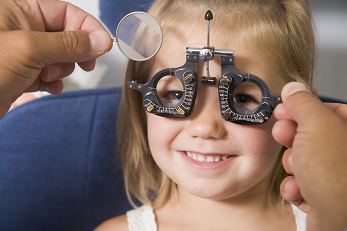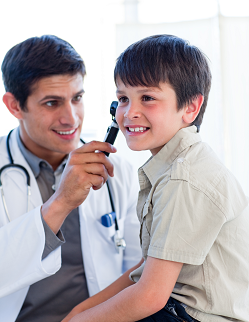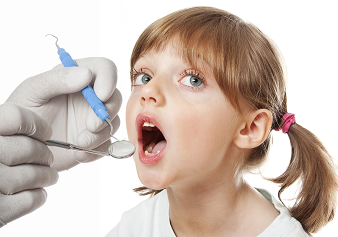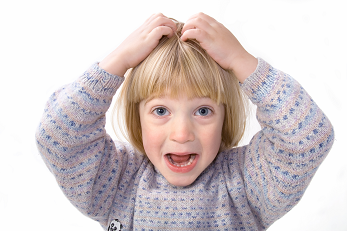Primary Times - the definitive what’s on and where to go family guide of activities and events for children of primary school age. Things to do with your kids during the school holidays including arts and craft activities, music and theatre for children, parties, competitions, days out, and family attractions along with term time drama schools, dance classes, after school clubs and sports activities. Things to do at a place near you!
Head's Up on Health Care
Ensure you’ve got the ‘Head’s Up’ on your child’s health care by arranging regular ‘check-ups’ to test eye and ear health, oral hygiene and be watchful for any signs of those beastly head lice!
Eyes:
Although there is an increased awareness of the importance of regular eye examinations, many  parents still do not take their children to an optometrist throughout their school life, so it’s good practise to schedule a regular eye appointment with your local optometrist at the same time as when you make the yearly check up with the dentist.
parents still do not take their children to an optometrist throughout their school life, so it’s good practise to schedule a regular eye appointment with your local optometrist at the same time as when you make the yearly check up with the dentist.
Children do not usually complain about their sight, but may show signs of not being able to see properly. Things to look out for include sitting close to the TV, holding objects very close to their face, blinking a lot, eye rubbing, or one eye turning in or out.
Under the NHS an eye examination is available free of charge for children up to the age of 16. Following an eye examination, parents are entitled to a voucher towards the cost of any glasses prescribed. Children should have an eye examination each year and certainly before the age of eight. For further information go towww.nhs.uk/LiveWell/eyehealth
Ears:
Although all children born in the UK are offered routine hearing tests, problems such as Glue Ear can affect a child at any time. Glue ear is a condition where the middle part of the ear becomes filled with a sticky, glue-like fluid. The eardrum and tiny bones in the middle ear cannot move properly and sound cannot easily pass through to the inner ear.
It is a common condition in young children and is the biggest cause of hearing problems in childhood. In fact, an estimated 80% of children under eight will experience temporary deafness caused by glue ear at some point.
Although Glue Ear is a temporary condition, the associated hearing loss can cause behavioural and communication problems. The best way to identify any hearing problems in a child is through observation.
A child who doesn’t respond when called, who watches the TV with the sound up, who talks loudly, who asks people to repeat themselves, who mishears words and says ‘pardon’ a lot, may be showing signs typically associated with a slight hearing loss.
If you suspect your child may have a slight loss of hearing, then speak to your doctor and ask for a referral to the local children's audiology service for an assessment. For more information on childhood hearing go to www.actiononhearingloss.org.uk or call 0808 808 0123.
Teeth:
Although many children may love losing teeth as the tooth fairy is extremely generous, the idea is to hang onto those teeth and let good oral hygiene reign.
A habitual teeth-cleaning routine is essential for good dental health and children should learn the skills to do this as early as possible. Children between 3 and 6 years old can use a pea-sized blob of toothpaste containing 1,350-1,500ppm fluoride and should be shown the correct brushing technique for at least two minutes twice a day, once in the morning and just before bedtime.
As a child develops, encourage them to brush their own teeth. Promote proper brushing by guiding your child's hand so they can feel the correct movement and try to make it as fun as possible. It will be helpful to take your child to the dentist at a young age so they can familiarise themselves with the environment.
With early intervention, the dentist can help to prevent decay and identify any health problems. Remember, NHS dental care for children is free. For details visit the website of the Oral Health Foundation - www.dentalhealth.org
Head Lice
Head lice and nits are largely harmless but they are such a nuisance as the beastly little creatures are so difficult to detect and so hard to eradicate. Head lice are wingless browny-grey insects and are about 2 mm long when fully grown. The female louse can lay up to six eggs a day, known as nits that are ‘glued’ to the hair, and hatch after 7 to 10 days.
The most common sign of infestation is when you see your child scratching his or her head on a more regular basis than usual. It is possible to treat head lice using either insecticides, available in shampoos, lotions, mousses, liquids and cream rinses, or through regular use of a fine-toothed comb on wet hair. Alternative treatments also include using Tea Tree Oil and electronic combs.
For more details go to www.nhs.uk/Conditions/Head-lice


